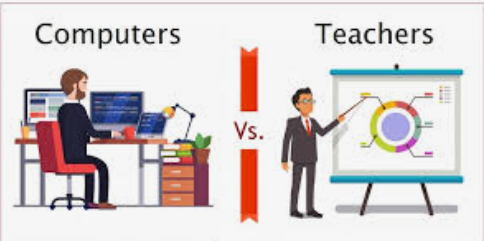In the age of technology, the debate over whether teachers should replace computers in the classroom is more relevant than ever. Here, we present a comprehensive analysis of both sides of the argument.
Point 1: Personal Touch vs. Automated Learning
- Teachers: They bring a personal touch to education, understanding and adapting to individual student needs.
- Computers: While adaptive learning software exists, it lacks the human element that teachers provide.
Point 2: Experience vs. Information
- Teachers: Experienced educators can offer insights and real-world connections that computers cannot.
- Computers: They can provide vast amounts of information quickly but cannot share personal experiences.
Point 3: Emotional Intelligence vs. Artificial Intelligence
- Teachers: They can offer emotional support and guidance, fostering a supportive learning environment.
- Computers: AI is advancing, but it still cannot replicate the emotional intelligence of a teacher.
Point 4: Creativity vs. Programming
- Teachers: Encourage creative thinking and problem-solving skills that go beyond standard curricula.
- Computers: They are limited to their programming and cannot inspire creativity in the same way.
Point 5: Discipline and Control vs. Technological Distractions
- Teachers: Can manage classroom discipline and maintain a focused learning environment.
- Computers: May lead to distractions, with students potentially veering off-task.
Point 6: Adaptability vs. Rigidity
- Teachers: Can adapt lessons on the fly based on classroom dynamics.
- Computers: Follow rigid programming and cannot easily deviate from the set curriculum.
Point 7: Mentorship vs. User Interface
- Teachers: Act as mentors, guiding students through their academic and personal growth.
- Computers: Provide an interface for learning but lack the mentorship aspect.
Point 8: Collaboration vs. Isolation
- Teachers: Promote collaboration among students, essential for developing teamwork skills.
- Computers: Often result in individual learning, which can isolate students from one another.
Point 9: Lifelong Learning vs. Obsolescence
- Teachers: Instill a love for lifelong learning and the pursuit of knowledge.
- Computers: Technology becomes obsolete, and content may not always be updated to reflect current knowledge.
Point 10: Accessibility vs. Equity
- Teachers: Can be accessible to all students regardless of their socio-economic background.
- Computers: Not all students have equal access to technology, leading to a digital divide.
In conclusion, while computers offer many benefits in terms of information access and technological proficiency, teachers provide invaluable human interaction, mentorship, and adaptability that shape the overall learning experience.
The ideal scenario may not be one replacing the other but finding a harmonious balance where technology enhances the irreplaceable role of teachers in education.

